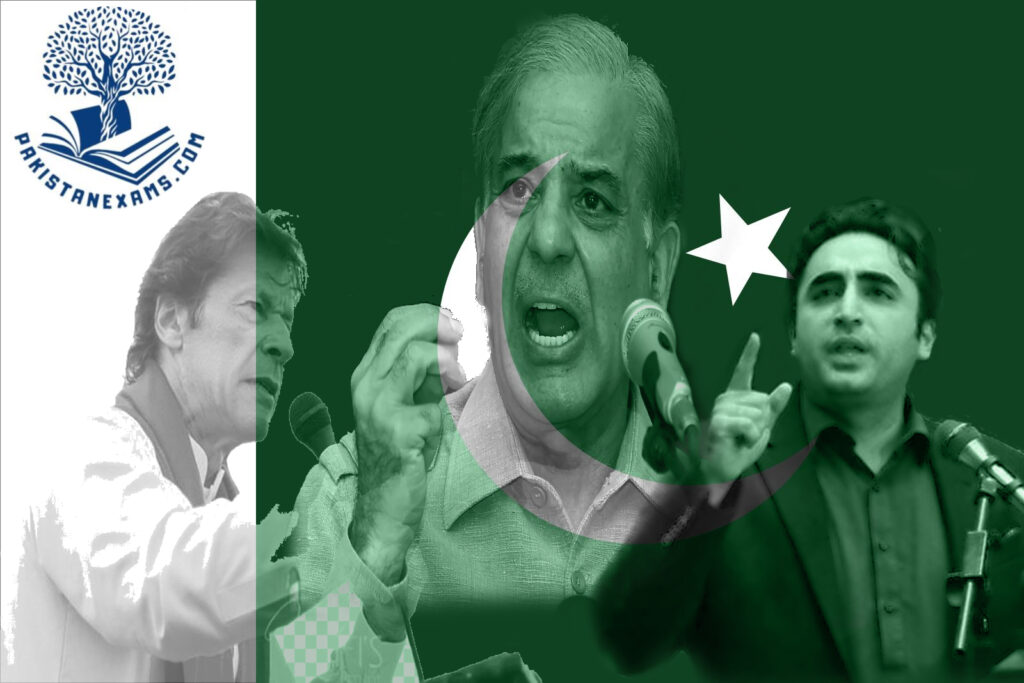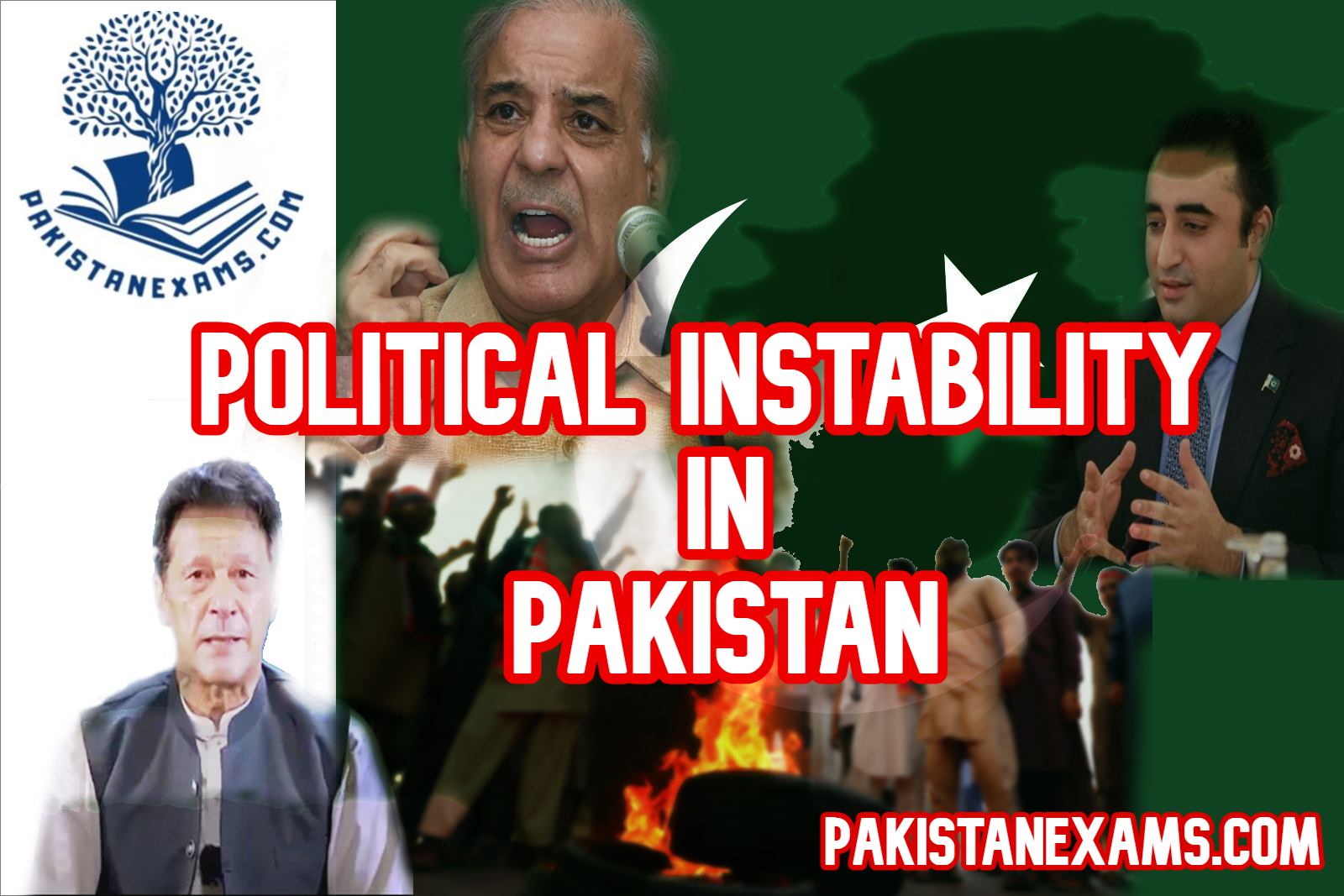
Pakistan has been politically instable since 1947. Till date no government has completed its 5 years tenure. The average tenure of a Prime Minister in Pakistan has been 1.5 years. Moreover, the country has faced social unrest, conflicts, strike and many more. All of these are indicators of political instability in Pakistan.
Furthermore, it is disastrous for Pakistan. The reason is that it affects all the walks of life. Thus the causes of political instability in Pakistan should be identified to devise a workable plan to counter it.
Let’s delve into the causes of Political Instability in Pakistan.
Causes of Political Instability in Pakistan
Institutional Weakness Causes Political Instability in Pakistan
Strong institutions are necessary for political stability in a country. Unfortunately, in Pakistan key institutions are weak. Therefore, they cause political instability.
Judiciary should have been powerful enough to keep the politicians in check. However, it is weak, so political leaders indulge in corruption. According to a report by the World Justice Project, Pakistan ranks 124th out of 137 countries in terms of rule of law.
Additionally, Election Commission of Pakistan has the task of conducting free and fair elections. However, all the elections have been blamed for irregularities. According to a report by the Free and Fair Election Network (FAFEN), the 2018 general elections were marred by widespread irregularities. It further says that 42% of the polling stations reported some form of violation. Weakness of such key intuitions have weakened the political system of Pakistan.
Political Factors that Cause Political Instability
There are mainly two major political parties in Pakistan. They are Pakistan Muslim League Nawaz and Pakistan Peoples Party. These two parties follow dynastic politics and avoid intra-party elections. Further, they have given birth to a culture of nepotism in Pakistani politics.
Moreover, these parties have ruled Pakistan since 1970’s. Their policies have not worked for the development of political system of Pakistan. Additionally, they have lost the trust of public. According to a report by the Pakistan Institute of Legislative Development and Transparency (PILDAT), 70% of Pakistani citizens believe that political parties are corrupt and serve personal interests.
Military Cause
Pakistan is 77 years old. For half of its life-time, it has been ruled by military dictators. Therefore, one can say that military, being the most disciplined institution in Pakistan, is better informed about politics than most of the politicians.
Therefore, military influences Pakistan’s politics and political parties. Ayesha Siddiqa, a Pakistani political analyst and author, has talked about it in her various books.
Economic Factors That Cause Political Instability in Pakistan
A weak economy also contributes to the political crisis of Pakistan. It causes budget deficits, high taxation, unemployment, and inflation. All of these create chaos in a country which further worsens the situation.
In fact, political instability and economic crisis are dependent on each other. A stable political system results in better policy-making and policy implementation. Consequently, a better and stable economy.
On the other hand, an instable political system causes economic crisis. Similarly, economic crisis also leads to political instability.
As the economy of Pakistan is facing many problems, so there is budget deficit. Hence, the Government of Pakistan seeks foreign support from other countries, such as China, Saudi Arabia, UAE, and US, etc. Additionally, it seeks help from institutions like IMF and the World Bank.
The foreign aid and loans have harmed the sovereignty of Pakistan. Because the donor countries and institutions influence the country’s internal and external policies. Thus, in this way the economic factors have caused political crisis in Pakistan.
Constitutional Causes of Political Instability in Pakistan
Constitution of Pakistan has also played a significant role in the political meltdown in Pakistan. The country has seen three constitutions since its inception. Similarly, the Constitution of 1973 has been amended many times. Each time amendments were made, they reflected shifting power dynamics, often leading to confusion and uncertainty.
These frequent changes to the constitution can lead to a lack of trust among the citizens. When the rules keep changing, people may feel that their voices aren’t being heard.
Moreover, the ambiguity in legal provisions sometimes leads to disputes among various institutions. Which further weaken the democratic process in Pakistan.
Social Factors
Social issues play a significant role in political turmoil. Pakistan is home to various ethnic groups and sects. While this diversity is a strength, it can also lead to conflict. Ethnic division often manifests in politics, with parties focusing more on regional interests rather than national unity.
Moreover, illiteracy and lack of political awareness also pose a challenge for political stability in Pakistan. Because due to these factors people are unable to hold their leaders accountable. Therefore, leaders do whatever suits them without the threat of accountability.
Similarly, it has been seen that when an ethnic group is sidelined, it chooses the path of protests. Such protests further disrupt the working of institutions and worsen the situation.
External Causes of Political Meltdown
Political Instability in Pakistan has also been caused by external factors. These include the country’s geo-strategic location and tension with neighboring countries.
International powers have developed interest in Pakistan’s location. For instance, it is the reason that made Pakistan a very important ally of the US during the Soviet-Afghan War and the War on Terror. Consequently, it destabilized peace in Pakistan because terrorist groups have been launching attacks inside Pakistan. Hench, it has increased the social, economic, and political problems of the country.
Similarly, tension with Afghanistan and India have played a crucial role in the political instability of Pakistan. The reason is that tension with these countries has increased security concerns of Pakistan. Therefore, Pakistan has increased its defense budget to counter these threats, neglecting its domestic issues. This is the reason that today, although Pakistan’s defense sector is strong, but its health, education and other key sectors are backward.
Thus, geographical location and tension with neighbors have led to political meltdown in Pakistan.
Conclusion
In conclusion, the most destructive threat to Pakistan is Political Instability. It is deadlier than any other problem faced by Pakistan currently because it affects nearly all the sectors of the country. It has been caused by various factors. These include weak institutions and economy as well as social, political, military, external and constitutional factors. Addressing these factors is extremely necessary for the development and progress of Pakistan.


2 thoughts on “Political Instability in Pakistan: The Top 7 Root Causes”